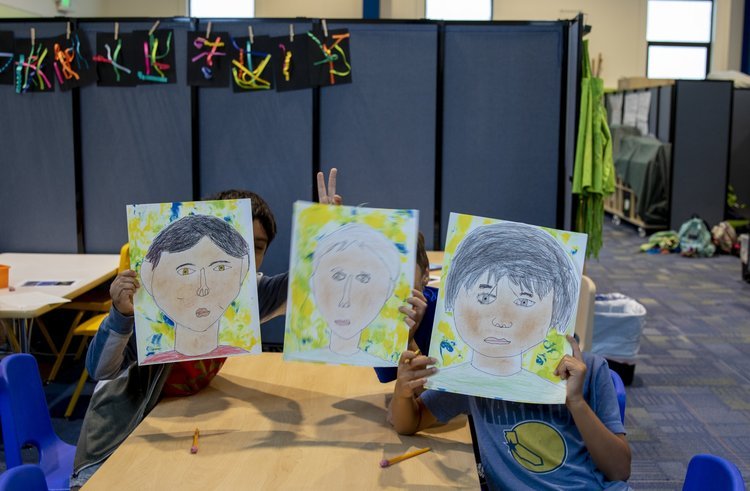Our Educational Philosophy
Our approach to learning is rooted in these evidence-based practices and outcomes:
Belonging sets the stage for learning
Mindsets and skill sets are more important than content
Learning with authentic purpose drives rigor and engagements
Students should be empowered to direct their own learning and deep inquiry
Language acquisition engenders cognitive benefits, and so much more
There are multiple pathways to, and measures, of success
Students can be effective agents of change for social justice
Our approach to learning informs key hallmarks of our program:
Mandarin Immersion
The cognitive benefits of learning a second language in early childhood are well researched, from better executive functioning to broader career and life opportunities as adults and the skills to travel and connect with the world as global citizens.
Presidio Knolls offers a “full immersion” program that encourages students to authentically use a second language for real and immediate purposes every day. Starting in preschool, our students spend 100% of learning time immersed in Mandarin. Through projects, song, dance, play, field trips, and inquiry-based learning, our preschoolers develop strong foundational Mandarin skills that carry them through elementary and middle school. Children do not need Mandarin support at home to succeed in this environment - they develop into proficient Mandarin speakers and listeners just through interactions in the classroom.
Mandarin immersion also comprises 80% of academic time during elementary school and 50% of academic time in middle school. Students learn to use Mandarin to communicate about a wide range of subjects through our integrated Units of Exploration (UoEs) and projects, which include the knowledge, concepts, skills, and habits of heart and mind that prepare students to explore, understand, and engage with the world. There is also a full class period each day devoted to Mandarin studies so that students can understand Chinese culture and history - not just read and write the language.
Progressive Education
At Presidio Knolls, our progressive approach works with a child’s natural inquisitiveness and desire to do, to make, to experiment, and to be involved with the world around them. We believe in:
Attending to the whole child, not just to the academics. We want to prepare our students to live healthy, connected, just, and successful lives by ensuring they have the social-emotional skills, as well as the knowledge, to pursue their passions.
Building a sense of community and collaboration amongst our students so they feel safe sharing and learning from each other. Our integrated curriculum also encourages collaborative problem solving and team work.
Social justice and taking our classroom learnings into the wider world to improve our community, both locally and internationally.
Developing our students’ intrinsic motivation so they can become lifelong learners. Within each Unit of Exploration (UoE) or middle school project, students are encouraged to pursue their personal interests and share their findings with their classmates.
Delving into a topic and developing a deep understanding of the subject matter. We believe that information learned should be understood in context and for a purpose.
Active learning, with students directing the course of inquiry within each unit. Students work together to formulate questions, find the answers, and think through possibilities. All students are encouraged to be self-reflective, with our older students leading their parent-teacher conferences.
Social-Emotional Learning
Education is not just academics - it’s about helping our students develop a strong sense of self and learn how to interact with others.
In preschool we help our students develop a positive sense of self-identity, belonging, and self-value that we hope carries through their entire lives.
In elementary school we layer on meditation classes and lessons that focus on specific topics like self-control, emotional understanding, setting and respecting boundaries, standing up for yourself and others, and dealing with frustration and distraction. This focus on social emotional learning and development of the self extends through middle school as students go through the most intensive period of cognitive growth since the first 18 months of life.
While social-emotional learning provides countless benefits to students as they grow into emotionally healthy young adults, it also helps prepare them for a future that is far different than the graduate-hire-retire framework their grandparents experienced decades ago. Tomorrow’s citizens will need to be flexible, creative, and able to work well with their peers — all skills we seek to foster at Presidio Knolls.
Service Learning
PKS is committed to supporting our students' growth as global citizens by finding opportunities to apply classroom learning to real-world issues. For example, as part of our Kindergarten UoE on the Five Senses, students visit the library for the blind and deaf services and then apply their learnings to figuring out how to make our campus more accessible to differently abled people.
Assessments and Results
At Presidio Knolls School, instead of assigning traditional letter grades, our report cards reflect a balanced and formative approach to assessing our students. We use a variety of tools to understand student work and to give students and parents useful feedback that guides future learning.
Our teachers get to know each child individually over the course of the school year, and provide parents with detailed written narrative progress reports three times a year. Formal parent-teacher conferences occur twice a year and as needed. All students are encouraged to reflect on their work and growth, and our older students eventually lead their parent-teacher conferences and present their self-reflections.
Connected Curriculum
Our connected curriculum provides our students with the opportunity to engage as deeply with the sciences, arts, and holistic wellness as they do academically through their elementary school Units of Exploration (UoEs) and middle school projects.
In our Reggio Emilia-inspired preschool program, our students regularly engage in dance, play, art, and movement, giving them plenty of ways to communicate in the “100 languages”.
In elementary school, our connected curriculum ensures students make, move, and create. Each day our K-5 students participate in two periods of outdoor recess, a 30-40 minute movement/mindfulness class, and one of four specialist classes that last an entire quarter, allowing them to engage deeply.
The four specialist classes are:
Maker/Science Lab, which helps our students develop their creativity, build concrete scientific and engineering skills, learn how to grow from failure, create new inventions, and learn design thinking and the scientific process.
Performing arts based off the Orff Approach that combines music, movement, drama, and speech. The quarter ends with a student performance.
Visual arts which gives PKS students the chance to not only make art, but also to appreciate art and grow social-emotionally through art.
Multimedia which encourages a love of literature and story-telling while addressing ideas like digital citizenship, information, media, and technology literacy.
As our students get older, they are given an opportunity to choose their own courses of study. Students in the PKS middle school choose one Making and one Movement/Mindfulness elective every two quarters, with each class meeting twice a week for an hour each session.
Making electives help middle school students build concrete artistic or engineering skills, develop a growth mindset, are rich in feedback, and may involve getting messy, making the world a better place, or building an innovative product or piece of art. Possible electives include studio art, robotics, knitting, and school publications.
Movement/Mindfulness classes give students the chance to be physically active and attuned to the ways their minds and bodies are interwoven, integrating social emotional learning, fitness, and health. Possible movement/mindfulness electives include ball sports, dance, yoga, geocaching, and service learning.
Research and Resources
Recommended Reading on Progressive Learning
What Kind Of Parent Are You: Carpenter Or Gardener? (NPR, May 2018)
Alfie Kohn, Progressive Education: Why it’s Hard to Beat, but also Hard to Find (2008)
Tom Little and Katherine Ellison, Loving Learning: How Progressive Education Can Save America's Schools (2015)
Recommended Reading and Resources on Immersion Education
New Ways of Seeing: How Multilingualism Opens Our Eyes and Trains Our Minds for a Complex World
Washington Post, Speaking two languages may help the aging brain (December 2018)
Center for Advanced Research on Language Acquisition (CARLA), What the Research Says About Immersion
American Council on the Teaching of Foreign Languages (ACTFL), What the Research Shows
CARLA: How Can Learner Language Inform Mandarin Immersion Teaching? (October 2018)
NPR, 6 Potential Brain Benefits of Bilingual Education (November 2016)
New York Times, The Superior Social Skills of Bilinguals (March 2016)
Education Week, Is Language Immersion Right for My Child? (March 2016)
RAND Corporation study of Portland Public Schools Mandarin immersion programs, Portland Immersion Students Become Better Readers, English Speakers (November 2015)
New York Times, Dual-Language Programs Are on the Rise, Even for Native English Speakers (October 2015)
Washington Post, Parents Want Elementary Pupils to Learn Foreign Languages -- But Where? (October 2014)
Psychology Today, Cognitive Advantages of Second Language Immersion Education (January 2014)
Education Week, What Research Tells Us About Immersion (September 2012)
Wall Street Journal, More Area Schools Embrace Chinese-Immersion Method (August 2012)
Asia Society, Chinese Language Learning in the Early Grades: A Handbook of Resources and Best Practices for Mandarin Immersion (2012)
Collier & Thomas, 2004: The Astounding Effectiveness of Dual Language Education for All







